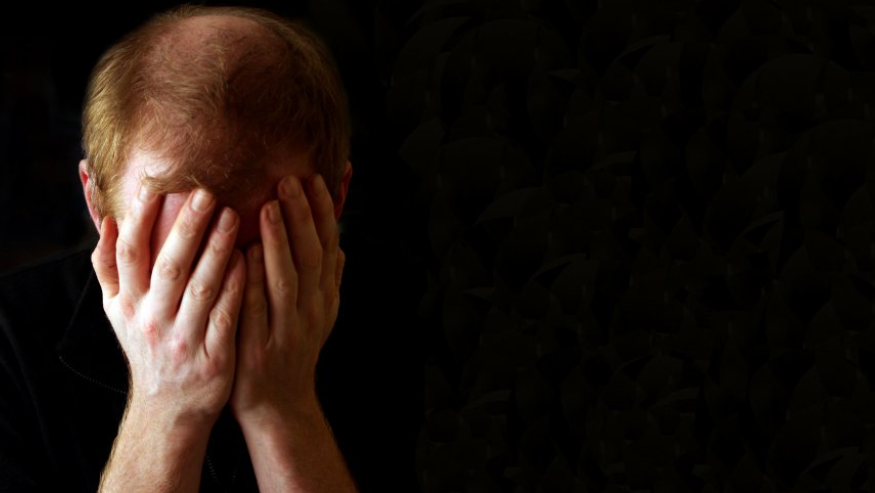Carer: I want my 100-year-old mother to die

"Allen" said he would not have a problem caring for someone he genuinely cared for
- Published
A man who is caring for his 100-year-old mother who has dementia wants her to die to "release me from this hell", he says.
Allen - not his real name - resents caring for her because of how he was treated by his parents as a child.
He said his mother did nothing to prevent abuse his late father subjected him to as a boy and he is only caring for her now out of a "sense of duty."
Care organisations say there is support available for those in a position like Allen's.
"I'm caring for someone I don't care for," Allen, from Staffordshire, told BBC Radio Stoke.
He has "deep resentment, bordering on hatred" for his mother as she "would probably have known" about the abuse.
Things for him got even worse when he discovered "disturbing things" and "frankly scary" possessions of his father, who died in 2012.
'Universe revolves around her'
It led Allen. an only child, to suffer a breakdown, prompting him to contact a psychiatrist.
His psychiatrist thought he had blocked out his childhood, agreeing that this was most likely down to "some form of trauma, quite possibly child abuse."
Allen said his late father once told his wife the only reason they had had him was to look after them in their old age, "which made me feel good, as you can imagine".
He said his mother had been a "kept person," who never had to do anything for herself, and her personality traits have been greatly magnified by dementia, so she thinks "the universe revolves around her".
Allen said he resents caring for her, feels "depressed" when he goes around to her house, and does not feel like he has his own life anymore.
"I'm a human being, she is a human being - I wouldn't treat a dog in a bad way, Iet alone a human being.
"I do it (care) as a sense of duty, nothing more than that."
For those who feel resentful about caring, and do it out of guilt or a sense of duty, there is help available, said Lisa Ronson-Cox from North Staffs Carers.
"A lot of carers say they do feel trapped, and haven't got their own life and identity, she said.
"But there are a lot of carers who do love the cared for, and want to care for them as long as possible."
'Don't feel guilty'
However Emily Holzhausen, of Carers UK said caring can involve a "whole range of complex emotions" that are hard to deal with.
"If you’re feeling resentful, frustrated, or depressed in your caring role it’s important not to feel guilty about having these emotions or to bottle them up," she said.
Many people feel they have a duty to provide care, "but there is no basis in law which requires family members to provide unpaid care for another adult who needs care," Ms Holzhausen continued.
"The law is actually framed in a way that you can say whether you are willing and able to care and that’s a critical part of the carer’s assessment process.
"An unpaid carer might not be willing or able to provide care for a whole host of reasons.
“It can feel very difficult to reach out to others when you feel this way, but if you’re caring for someone you are not alone."
She urged anyone in Allen's position to get professional advice "about your rights, entitlements and support".
For information and support about issues raised in this article, visit BBC Action Line.
Follow BBC West Midlands on Facebook, external, X, external and Instagram, external. Send your story ideas to: newsonline.westmidlands@bbc.co.uk, external